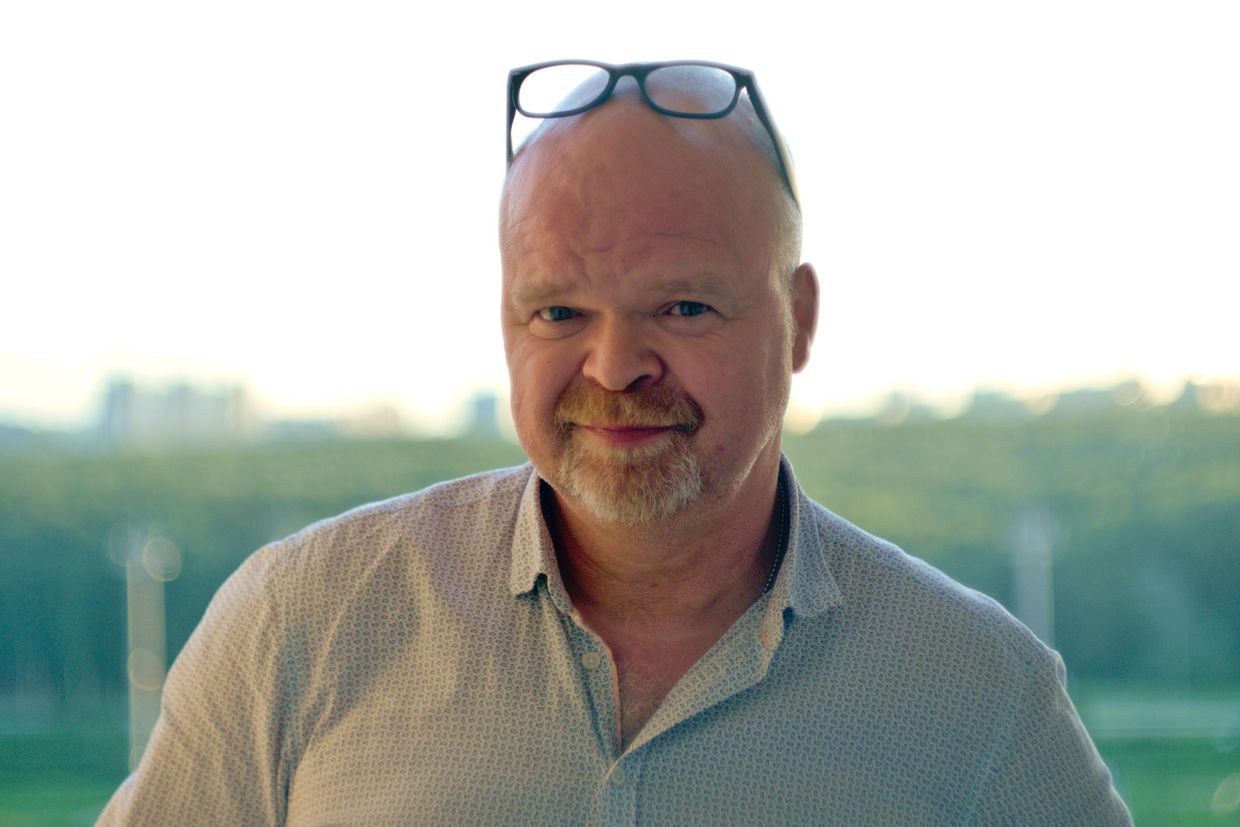
French photojournalist Hicham El Bouhmidi has been denied entry to Georgia, making him one of the latest among Western journalists to be denied entry to the country in the last few months.
El Bouhmidi told OC Media that he was barred from entering the country on 2 August, following a visit to Armenia. A member of photojournalism agency Collectif DR, he had been based in the country since October 2024.
Upon attempting to re-enter the country at the Sadakhlo border crossing with Armenia, he was informed that he had to pay a ₾5,000 ($1,800) fine for ‘participating in a protest in March’. El Bouhmidi told OC Media that the border guards did not present him with any official documents regarding the fine. However, it is likely that he was fined for ‘blocking the road’ during a protest — an offence several journalists, including OC Media’s director Mariam Nikuradze, have been accused of while covering protests.
He added that he was interrogated by a plainclothes officer in a separate room, who took a photo of his press card and called someone with whom he discussed El Bouhmidi’s work. He added that the officer demanded that he pay the fine.
‘He didn’t even mention the fact that it was in March, or even linked to a protest as the police officer previously did. I declined as I said I don't have sufficient funds’, he said.
Afterwards, he was sent back to the passport control area, where he waited for five hours before being handed a document saying he was denied entry to Georgia for ‘other cases envisaged by the Georgian legislation’. Georgian border officials regularly use this justification as a tool to bar people, including Western activists and journalists critical of the governments in Tbilisi and Moscow, from entering the country.
‘I’ve been told by the police officer who read my rights that I need to contact the [Interior Ministry] to know what the exact reason is’, El Bouhmidi said.
‘Considering that several fellow journalists and photographers got denied entry in Georgia over the past months, I was aware that I was exposed to this decision, it didn’t come as a surprise’, he added. ‘Expected, yes, but still sad and infuriating’.
El Bouhmidi said he is in touch with a legal team and plans to appeal the authorities’ decision to deny him entry.
‘I will eventually try to re-enter Georgia in the future, but will wait to see the developments in my case and other journalists who were also denied entry over the past months.’
El Bouhmidi said that he had been visiting Georgia regularly since 2022, having previously come here as a tourist or an exchange student. He said that he wrote his master’s thesis in geopolitics on Georgia.
He told OC Media that he only began working as a journalist in October 2024 ahead of the parliamentary elections held that month, and that he was able to exit and re-enter Georgia multiple times in January and July.
Since October 2024, El Bouhmidi has covered protests in Tbilisi, as well as in Zugdidi and Chkhorotsku in the western Samagrelo region. He has also covered the government-sanctioned ‘family purity day’ on 17 May — a holiday created by the Georgian Church to counter potential demonstrations or rallies by the queer community commemorating the International Day Against Homophobia and Transphobia (IDAHOT), which coincides on the same day.
A growing list of border denials
El Bouhmidi is among the latest of a number of Western journalists critical of the governments in Tbilisi and Moscow to have been denied entry into the country — a seemingly popular trend since the outbreak of daily anti-government protests in late November following the Georgian government’s decision to suspend the country’s EU membership bid.
Some of the more high-profile cases involving Western figures being denied entry include former US diplomat and civic sector consultant Maggie Osdoby Katz, Romanian stand up comedian Victor Patrascan, prominent French photographer Marylise Vigneau, and Lithuanian women’s rights advocate Regina Jegorova-Askerova. Jegorova-Askerova reportedly had a family in Georgia, including two children, and also held permanent residency.
On 21 May, Simon Vandenbroucke, an Enlargement Programme Officer working for the EU Delegation to Georgia, was denied entry to Georgia without explanation. After the delegation addressed the Georgian Foreign Ministry regarding the matter, however, the Georgian authorities ‘presented oral apologies for the regrettable incident and confirmed that the staff member is welcome to come back to his place of posting’.
Later the same month, the French and Polish Embassies in Georgia issued travel advisories, warning their citizens they could be denied entry into Georgia or face heavy fines for participating in or sharing information on social media related to the ongoing anti-government protests.






![Baia Margishvili standing in central Tbilisi with a sign reading: ‘The Prosecutor’s Office [is] a punitive squad. How many more innocent people will you put in prison?’ Photo: Mariam Nikuradze/OC Media.](/_next/image/?url=https%3A%2F%2Fassets.bucket.fourthestate.app%2Foc-media-prod%2Fcontent%2Fimages%2F2026%2F02%2Fcalls-for-sanctions-and-raids-19-10-25-48.jpg&w=3840&q=50)





